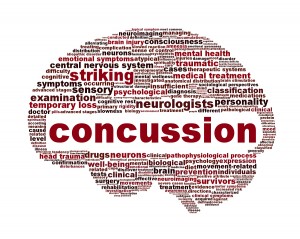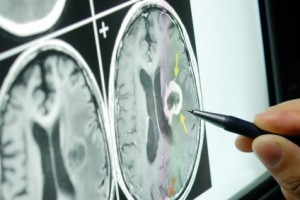Effective treatments for traumatic brain injuries are still being studied, but currently, there is no widely available treatment that can reduce the damage or reverse the effects of a brain injury. At TryMunity, we follow ongoing scientific efforts at making the next traumatic brain injury medical breakthrough. Although further research is needed, the following two treatments show promise for someday helping survivors.
treatments for traumatic brain injuries are still being studied, but currently, there is no widely available treatment that can reduce the damage or reverse the effects of a brain injury. At TryMunity, we follow ongoing scientific efforts at making the next traumatic brain injury medical breakthrough. Although further research is needed, the following two treatments show promise for someday helping survivors.
Treatment to Stabilize Severe Injuries
One study is testing the benefits of the human hormone progesterone in stabilizing patients and curbing the damage that occurs during a brain injury. According to materials from Emory University, preliminary research found the following outcomes when TBI survivors were given progesterone shortly after an injury:
- Patient mortality was reduced by 50 percent.
- Patients showed improved functional outcomes and decreased disability.
- The treatment had no apparent adverse affects.
This research has progressed into a phase III clinical trial, which means the treatment may become commercially available if it successfully passes this phase. This traumatic brain injury medical breakthrough cannot help survivors who have been severely injured, unfortunately, but another treatment may do just that.
Rehabilitative Treatment for Milder Injuries
Research from the Institute of Neurological Recovery suggests that administration of the drug etanercept may reduce lingering neurological dysfunction after a brain injury. Patients who received this treatment showed improvements in motor control and cognition, but researchers note that the treatment is not for severe injuries. Patients received the drug more than 9 years after suffering the injury, on average, which suggests this treatment may help people who have long lived with TBIs.
Ongoing Research Efforts
Both of these treatments require further study. Whether or not the treatments are considered successful, survivors and researchers will continue to hope for the traumatic brain injury medical breakthrough that will yield a genuine cure.
If you would like to keep up with ongoing news about progress in understanding and treating TBIs, please consider joining the TryMunity community. Our community members enjoy access to various resources designed for people overcoming TBIs, along with the chance to connect with other survivors and supporters.


 Traumatic brain injuries affect more than 1 million people a year, according to the Centers for Disease Control and Prevention. Although these injuries occur frequently, many people, from victims to friends and family, do not fully understand them. At TryMunity, we often hear the following
Traumatic brain injuries affect more than 1 million people a year, according to the Centers for Disease Control and Prevention. Although these injuries occur frequently, many people, from victims to friends and family, do not fully understand them. At TryMunity, we often hear the following  If you have recently suffered from a head injury, it is vital that you are able to recognize the
If you have recently suffered from a head injury, it is vital that you are able to recognize the  A traumatic brain injury can have a wide range of physical and psychological effects. At TryMunity, we recommend watching out for these
A traumatic brain injury can have a wide range of physical and psychological effects. At TryMunity, we recommend watching out for these  The type of
The type of  Traumatic brain injury, or
Traumatic brain injury, or  At TryMunity, we know that babies are incredibly precocious and have a very strong desire for exploration and autonomy. While it is important to allow these characteristics to mature within a child so that they remain thirsty for knowledge and adventure, it is also important to ensure that some preventative measures are taken. While it is not practical to cover your home in bubble wrap, there are a number of things that you can do to help your child avoid suffering from a baby head injury. Traumatic Brain Injury, or
At TryMunity, we know that babies are incredibly precocious and have a very strong desire for exploration and autonomy. While it is important to allow these characteristics to mature within a child so that they remain thirsty for knowledge and adventure, it is also important to ensure that some preventative measures are taken. While it is not practical to cover your home in bubble wrap, there are a number of things that you can do to help your child avoid suffering from a baby head injury. Traumatic Brain Injury, or  If you are suffering from a brain injury, or know someone who is, you are probably aware of the struggles that go along with it. From memory loss to trouble focusing, the list of symptoms can be extensive. However, acquiring a slight and transient brain injury or a
If you are suffering from a brain injury, or know someone who is, you are probably aware of the struggles that go along with it. From memory loss to trouble focusing, the list of symptoms can be extensive. However, acquiring a slight and transient brain injury or a  Unfortunately, concussions are becoming rather commonplace, especially for those involved in contact sports. Since concussions are a type of traumatic brain injury, the TryMunity community offers support and education on the topic. If you have recently suffered a concussion and are still experiencing symptoms even after an extended period of time, you may be dealing with
Unfortunately, concussions are becoming rather commonplace, especially for those involved in contact sports. Since concussions are a type of traumatic brain injury, the TryMunity community offers support and education on the topic. If you have recently suffered a concussion and are still experiencing symptoms even after an extended period of time, you may be dealing with 

